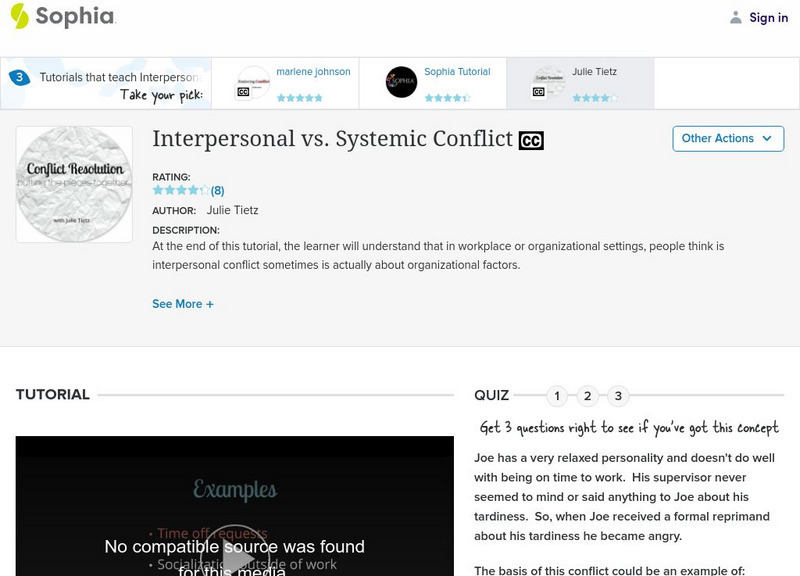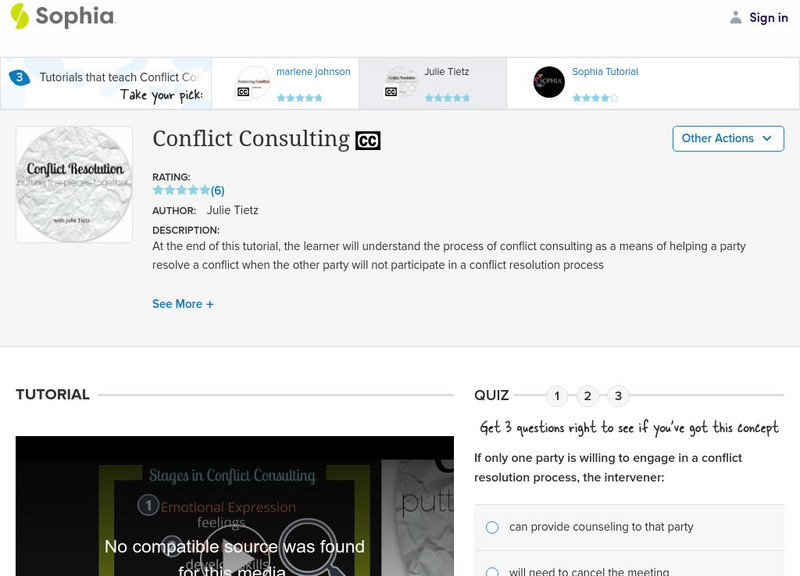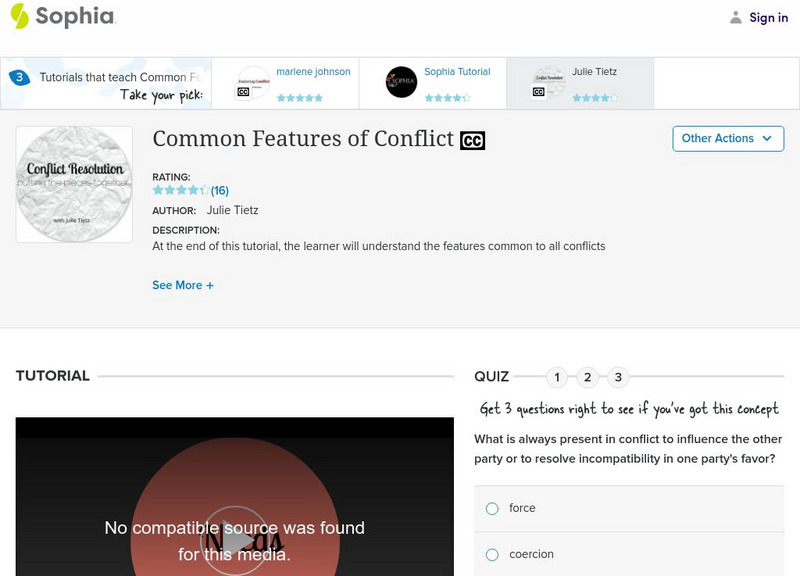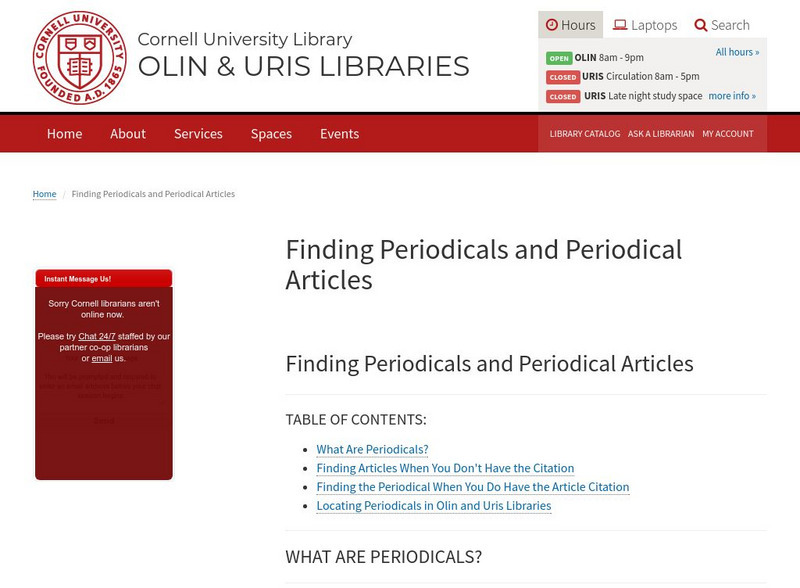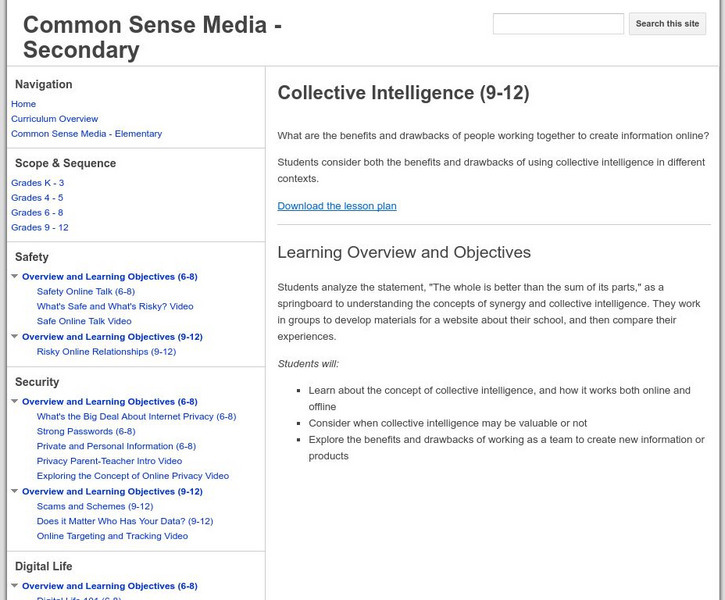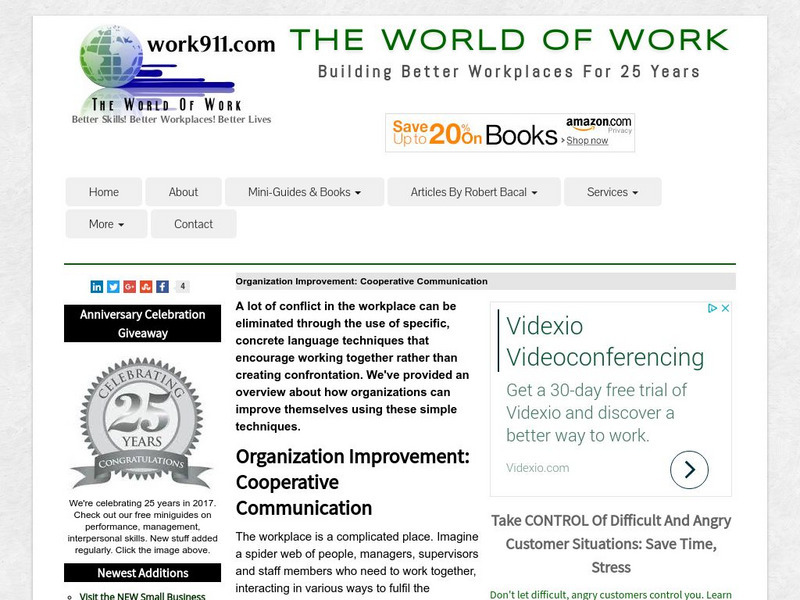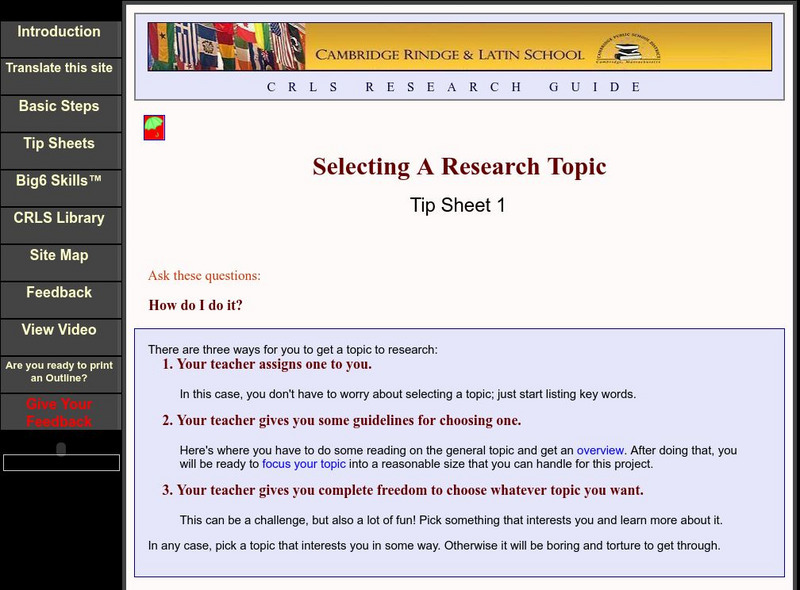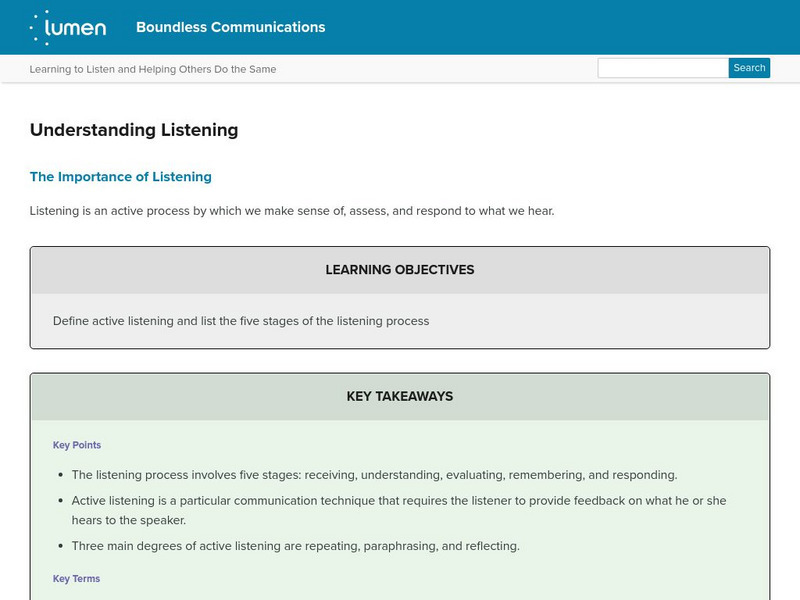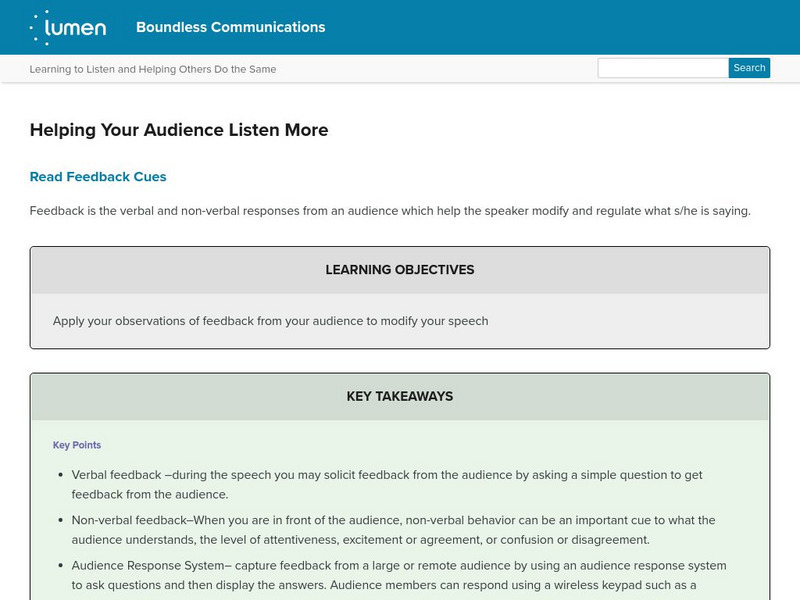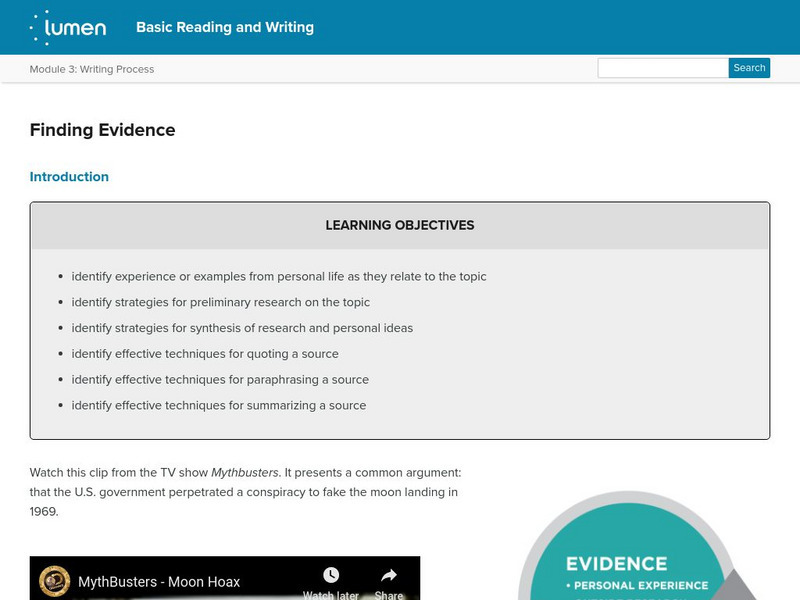Hi, what do you want to do?
Sophia Learning
Sophia: Interpersonal or Systemic: When the Rules Are the Problem: Lesson 1
At the end of this tutorial, the learner will understand that in workplace or organizational settings, people think is interpersonal conflict sometimes is actually about organizational factors. It is 1 of 3 in the series titled...
Sophia Learning
Sophia: Why and How Do Humans Group?: Lesson 2
At the end of this tutorial, the learner will understand causes and dynamics of group formation. It is 2 of 3 in the series titled "Why and How do Humans Group?."
Sophia Learning
Sophia: Addressing Communication Style Difference in Conflicts: Lesson 2
At the end of this tutorial, the learner will be able to use strategies and techniques for addressing communication style differences in conflict or conflict resolution situations.. It is 2 of 3 in the series titled "Addressing...
Sophia Learning
Sophia: Conflict Consulting: Lesson 2
At the end of this tutorial, the learner will understand the process of conflict consulting as a means of helping a party resolve a conflict when the other party will not participate in a conflict resolution process. It is 2 of 3 in the...
Sophia Learning
Sophia: Common Features of Conflict: Lesson 1
At the end of this tutorial, the learner will understand the features common to all conflicts. It is 1 of 3 in the series titled "Common Features of Conflict."
Cornell University
Cornell University: Finding Periodicals and Periodical Articles
This resource offers a good look at periodicals as a source of information, and offers help for finding articles in a variety of situations.
Mind Tools
Introducation to Communication Skills
This article reveals the purpose of communication: to get your message across to others. This may seem elementary, but the process that involves both the sender of the message and the receiver is complex and can lead to confusion and...
Common Sense Media
Common Sense Media: Education: Collective Intelligence (Grades 9 12)
Students analyze the statement, "The whole is better than the sum of its parts," to understand the concepts of synergy and collective intelligence. They consider both the benefits and drawbacks of using collective intelligence in...
Biz Move
Biz Move: Overcoming Communication Barriers How to Overcome Noise in Communication
Discusses communication barriers, particularly in the work environment, and examines how to overcome them. Barriers discussed include noise, faulty feedback, poor media selection, mental barriers, poor word selection, time and space...
Biz Move
Biz Move: How to Be a Better Listener
Article on the importance of listening in the business setting. Explains what listening is, gives guidelines, and lists barriers.
Other
Center for Human Systems: Team Conflict How to Manage It
This site describes different kinds of conflict that occur in groups, and then it provides information on managing those conflicts. SL.11-12.1b Group Rules, SL.11-12.1d Resolve/Synthesize
Mind Tools
Mind Tools: Problem Solving Skills
Discover the four basic steps in problem solving: defining the problem, generating alternatives, evaluating and selecting alternatives, and implementing solutions. The first step, defining the problem, is discussed in detail. Links to...
Other
Work 911: Cooperative Communication
This site defines "Cooperative Communication" and provides examples and information as to how to apply it. Although the article is geared toward the workplace, it applies to all forms of communication, especially when negotiating....
Other
Focusing on Interests Rather Than Positions Conflict
This site contains six rules to follow that will reduce conflict and increase cooperation when negotiating.
Brown University
Brown University: Debates
Use this resource to learn how to engage in collaborative discourse and argumentation enhances student's conceptual understandings and refines their reasoning abilities. Be sure to click on the links to other resources.
Other
Inter Link: Achieving Effectiveness Through Team Communication
Article discusses how to achieve better team communication. Lists the components of team communication along with barriers to effective communication. Also provides a section on feedback. SL.9-10.1d Possitive Communication Stratagies,...
ReadWriteThink
Read Write Think: Conflict Map
This graphic organizer focuses on conflict: identifying the conflict, listing possible resolutions, and determining the cause of the conflict. It can be used as a reading tool, a writing organizer, or solving a real-life conflict.
Cambridge Rindge & Latin School
Selecting a Research Topic
A good resource which explains and outlines a student's choices when confronted with choosing a research topic. Includes links to an overview, focusing your topic, and more.
Joe Landsberger
Study Guides & Strategies: Elements of a Research Paper
All the basics of writing the research paper are presented here very succinctly. Links to more in-depth looks at various steps are provided.
Lumen Learning
Lumen: Boundless Communications: Understanding Listening
This lesson focuses on understanding listening including defining active listening, the five stages of the listening process, listening and critical thinking, and the four main barriers to effective listening.
Lumen Learning
Lumen: Boundless Communications: Helping Your Audience Listen More
This lesson focuses on helping your audience listen better by offering strategies such as read feedback cues, employ strategies for maintaining audience focus, use strategies to maximize audience understanding, build credibility, and...
Lumen Learning
Lumen: Boundless Communications: Logical Appeals
This lesson focuses on using logical appeals in persuasive speeches including inductive and deductive reasoning, inductive reasoning and associative reasoning, forming a rational appeal, and errors in reasoning-formal and informal.
Lumen Learning
Lumen: Boundless Communications: Conclusion
This lesson focuses on writing the conclusion of your speech including the role of the conclusion, summarizing ideas, signaling the end, and managing Q&A.
Lumen Learning
Lumen: Writing Process: Finding Evidence
This lesson focuses on finding evidence to support your thesis, how to incorporate your findings into your own work, and how to effectively quote, paraphrase, and summarize your information. CCSS.ELA-Literacy.CCRA.W.9, W.11-12.1b...





